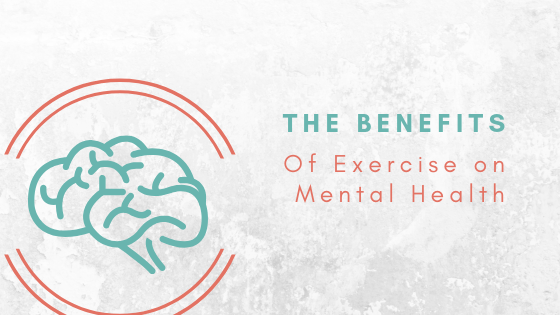The Benefits of Exercise on Mental Health
The Benefits of Exercise on Mental Health
If you missed the other blog on the benefits of exercise on memory, check it out here!
The Benefits of Exercise on Physical Health
When we think of the benefits of exercise, most of us probably think about getting into better shape, or maybe things like having a healthier heart and being able to move around easier. Exercise is great for our physical health, most of us are aware of this reality. However, the benefit of exercise extends far beyond just physical health benefits.
The Benefits of Exercise on Mental Health
Many of us may be initially surprised that physical activity holds significant benefits for our mental health.
This topic has been looked into in several studies and two huge benefits have been discovered:
Exercise has been shown to significantly decrease the severity of several mental illnesses, including depression and anxiety (1, 2, 3, 4, 5).
Exercise has been linked with reducing self-esteem, improving mood, and decreasing stress (1, 2, 3, 4, 5, 6).
So not only can exercise help those of us who are dealing with depression and anxiety, it also benefits anyone struggling with self-esteem, poor mood, or stress. In all, exercise can benefit virtually all of us!
In short, physical activity poses countless benefits not only for our physical health, but also for our mental health. Knowing the benefits of physical activity is one thing, but being able to make a plan and incorporate exercise into your routine schedule is a whole other thing. For tips on fitting exercise into a busy schedule, check out this blog.
References:
1. Biddle S. (2016). Physical activity and mental health: evidence is growing. World psychiatry :official journal of the World Psychiatric Association (WPA), 15(2), 176-7.
2. Callaghan, P. (2004). Exercise: A neglected intervention in mental health care? Journal of Psychiatric and Mental Health Nursing, 11(4), 476-483. Retrieved from https://onlinelibrary.wiley.com/doi/full/10.1111/j.1365-2850.2004.00751.x
3. Deslandes, A., Moraes, H., Ferreira, C., Velga, H., Silveria, H., Mouta, R., Pompeu, F. A.M.S., Coutinho, E. S. F., Laks, J. (2009). Exercise and Mental Health: Many Reasons to Move. Neuropsychobiology, 59, 191-198.
4. Richardson, C. R., Faulkner, G., McDevitt, J., Skrinar, G. S., Hutchinson, D. S., & Piette, J. D. (2005). Integrating Physical Activity Into Mental Health Services for Persons with Serious Mental Illness. Psychiatric Services, 56(3), 324-331. https://doi.org/10.1176/appi.ps.56.3.324
5. Stathopoulou, G., Powers, M. B., Berry, A. C., Smits, J. A., & Otto, M. W. (2006). Exercise Interventions for Mental Health: A Quantitative and Qualitative Review. Clinical Psychology: Science and Practice, 13(2) 179-193. Retrieved from https://onlinelibrary.wiley.com/doi/pdf/10.1111/j.1468-2850.2006.00021.x
6. Godman, H. (2018). Regular exercise changes the brain to improve memory, thinking skills. Harvard Health Publishing. Retrieved from https://www.health.harvard.edu/blog/regular-exercise-changes-brain-improve-memory-thinking-skills-201404097110

